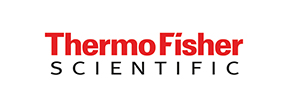Improve efficiency and return on investment by adopting molecular spectroscopy techniques in pharma manufacturing
7 September 2021
Shares
- Like
- Digg
- Del
- Tumblr
- VKontakte
- Buffer
- Love This
- Odnoklassniki
- Meneame
- Blogger
- Amazon
- Yahoo Mail
- Gmail
- AOL
- Newsvine
- HackerNews
- Evernote
- MySpace
- Mail.ru
- Viadeo
- Line
- Comments
- Yummly
- SMS
- Viber
- Telegram
- Subscribe
- Skype
- Facebook Messenger
- Kakao
- LiveJournal
- Yammer
- Edgar
- Fintel
- Mix
- Instapaper
- Copy Link
In this on-demand webinar, discover the differences between FTIR, NIR and Raman spectroscopy, learn how spectroscopy is applied in quality control labs and hear how implementation of these techniques increased efficiency and minimised costs.
About this on-demand webinar
Pharma and biopharma manufacturing are under constant pressure to improve efficiency, increase productivity and reduce costs while still maintaining product quality.
Molecular spectroscopy (Fourier transform infrared [FTIR], near-infrared [NIR] and Raman) are versatile, non-destructive and green techniques that enable rapid analysis of raw materials, allowing for processes to be monitored and final products analysed with ease. Implementation of these techniques in manufacturing will ensure rapid return on investment and allow drug manufacturers (pharma, biopharma, parenteral, injectables) to easily implement quality by design (QbD) principles into routine practise.
Learning outcomes of this webinar
- Understand the differences between FTIR, NIR and Raman spectroscopy
- How spectroscopy is applied in quality control labs
- Learn from real examples of spectroscopy techniques in pharmaceutical workflows (Raw materials analysis, process analytical technology [PAT], finished product testing, contaminant/foreign particle testing)
- Hear how implementation of these techniques increased efficiency and minimised costs
Our speaker


Shailesh Karavadra is currently Applications Manager for Vibrational Spectroscopy in EMEA. He has worked with pharmaceuticals, chemicals and the food industry for over 15 years, implementing vibrational spectroscopy in QC labs and processes. He is currently responsible for the development of new applications with vibrational spectroscopy in EMEA region.





